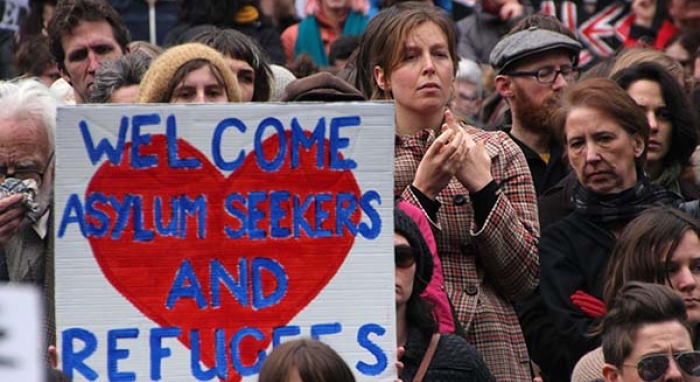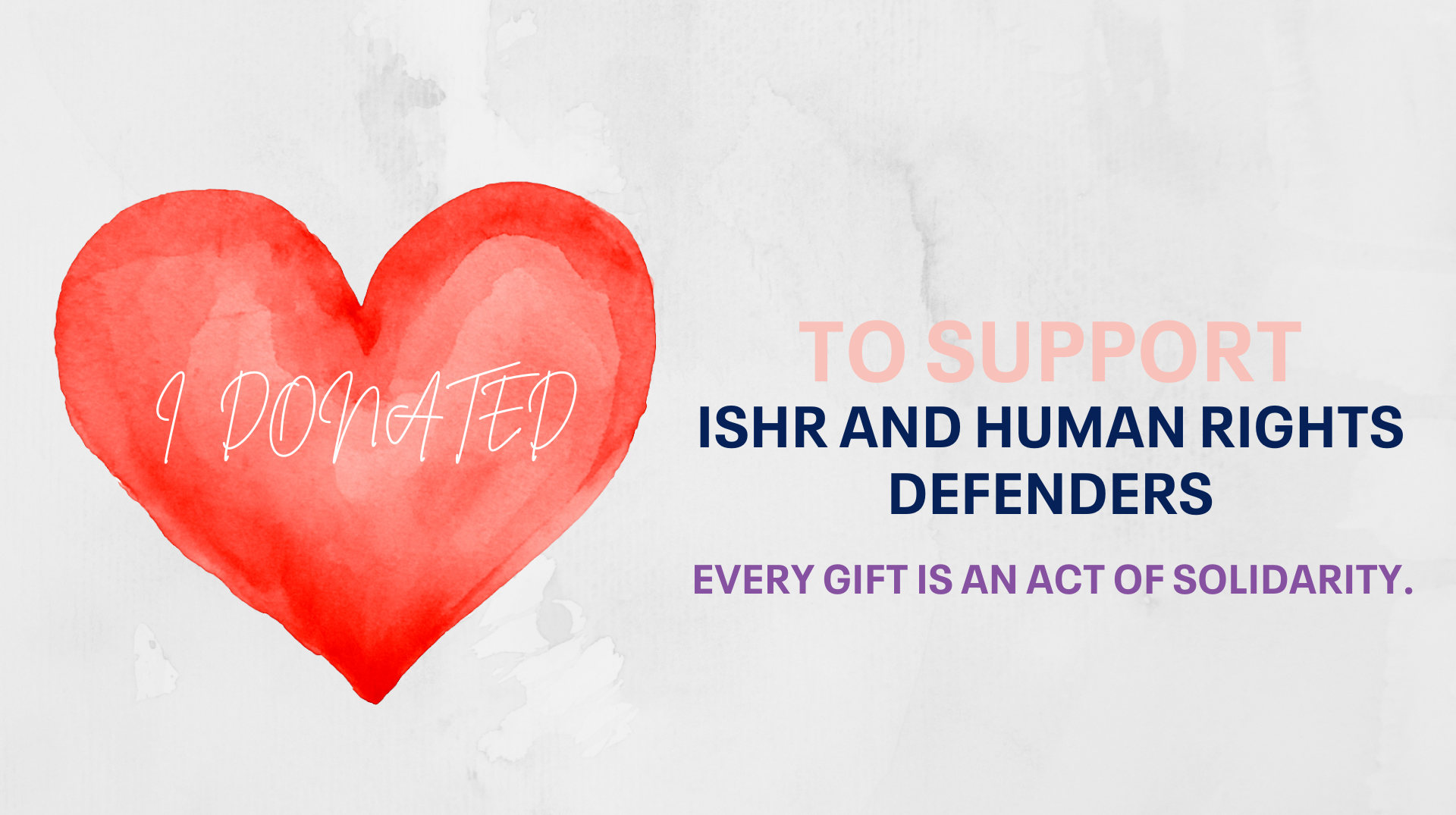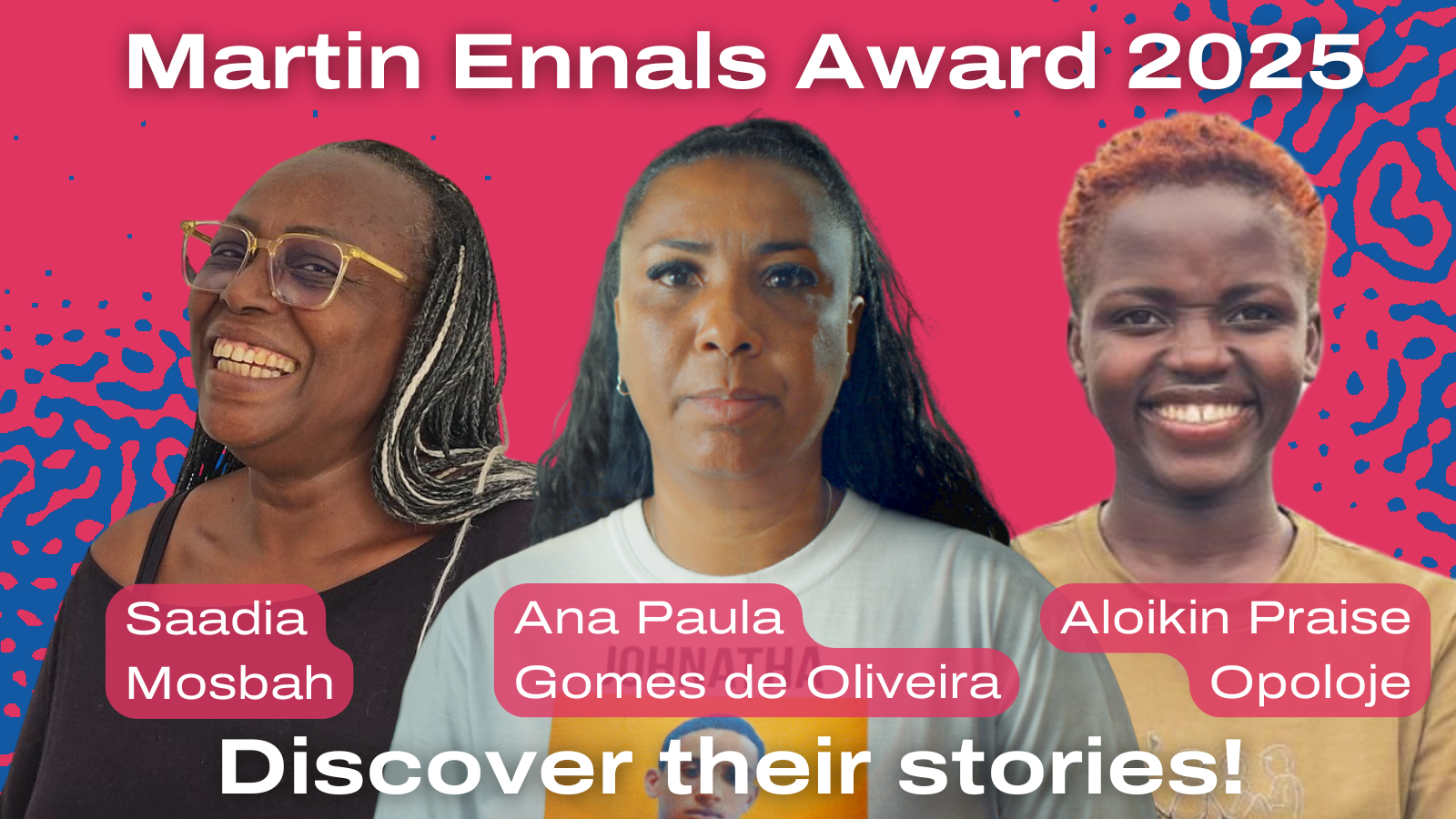Overview
The report, by UN Special Rapporteur Michel Forst, examines the many ways in which human rights defenders are impacted by the current environment related to migrant and refugee flows. For example, defenders may become migrants or refugees as a result of the harassment and violence they face in their own communities or countries.
Sarah M Brooks, who leads ISHR’s work in this area, emphasised: ‘This report is an important follow-on to the work of the Special Rapporteur and many in civil society. Human rights defenders are defined by their work; if they are forced to go abroad, but then unable to carry out their activities because of a restrictive visa scheme, even the best-intentioned relocation programmes can fail defenders.’
At the same time, migrants – including migrant workers – who seek to stand up for their rights and those of others face unique threats, including deportation. The case of Sujana Rana and Rose Limu Jee, two migrant domestic workers from Nepal who were detained and deported after advocating for freedom of association in Lebanon, is a prime example.
And defenders in countries of destination – whether the Gulf, the United States, or many Member States of the European Union – find that their own governments may rollback protections or even funding for civil society and defenders when migration-related issues are the focus, or in the worst cases criminalise assistance to migrants and refugees (which activists have termed délits de solidarité).
In each of these cases, however, the Special Rapporteur is clear: ‘Empowering defenders on the move is crucial to the prevention of further tragedy.’
Main challenges
- Limits on access to migrant and refugee populations. This can appear as overt limits on physical presence in border areas or due to the remote nature of some areas where populations on the move are concentrated. This includes securitised border zones and offshore facilities. In both cases, the real impact is to increase physical and financial barriers to access, preventing people on the move from accessing independent services and much-needed legal counsel.
- Criminalisation. Some defenders struggle against risks of criminal prosecution both nationally and as a result of local bylaws, particularly registration requirements (based on geographic areas of work, for example). The overzealous application of existing law has also been sued to accuse people of harbouring or smuggling, when in reality the individual was engaged in humanitarian activity. This threat of criminal charges has a chilling effect, as does the decrease in funding for organisations working in this area (both anti-racism work and traditional legal aid centres).
- The growing role of non-state actors. Especially in some parts of Latin America, organised crime poses significant threats to defenders, as well as to States should they try to protect them. Businesses are also implicated, as the report notes particular types of private employment contracts which ‘gag’ service providers and impose outsized fines or criminal penalties for discussing the situation. Finally, in cases where governments have outsourced certain services, tools like access to information requests (normally directed at public authorities) are no longer available.
The report aligns well with the OHCHR Principles and Practical Guidance for the protection of the Human Rights of Migrants in Vulnerable Situations, namely Principle 18 which states that ‘States must respect and support the activities of human rights defenders who promote and protect the human rights of migrants’. This document will also be considered at the upcoming session of the Council.
‘The two documents are fully complementary’, Brooks says. ‘The recommendations of the OHCHR and the UN expert have no daylight between them – their message is quite simple. In order for lives to be saved, States must ensure that human rights defenders and civil society can operate safely and without hindrance.’
Additional recommendations
To States:
- Take all measures to protect the right to life, liberty and security of persons on the move and those who defend their rights
- Recognise publicly the important role of defenders of people on the move, and condemn harassment, intimidation and other forms of violence against them
- Enable the exercise of fundamental freedoms, such as expression, association and assembly by all, regardless of immigration status
- Ensure that human rights defenders in exile are recognised as potentially protected against refoulement
- Ensure that national law and administrative provisions facilitate work of civil society organisations and defenders, and avoid criminalisation or stigmatisation.
To the United Nations:
- recognise publicly the important role played by defenders of people on the move and the legitimacy of their work (this includes the International Organisation for Migration, or IOM)
- within the Special Procedures, improve tracking of Communications related to people on the move
To national human rights institutions:
- Include people on the move in efforts to monitor the situation of human rights in the country, as well as the situation for human rights defenders
To civil society actors and funders:
- Strengthen temporary relocation initiatives, internal and international, and improve sharing of best practices for initiatives that are grounded in key principles of defenders’ engagement
- Improve inclusion of exiled human rights defenders through proactive recruitment and incorporation into local networks
The report cites a submission by the government of Greece which sums up the relevance of the report, noting that ‘in most cases, people on the move, having no vote or other means to make their voices heard, depend on advocates and defenders to a higher than normal degree to make their concerns known’.
‘The marginalisation of people on the move is often reflected in the marginalisation of those who work to support them,’ says Brooks. ‘It is essential that States recognise this. Without space for civil society to operate and an environment where defenders can carry out their work, the vulnerabilities of people on the move will only continue to grow, no matter how many global commitments governments make’.
Photo credit: Takver, via Flickr




